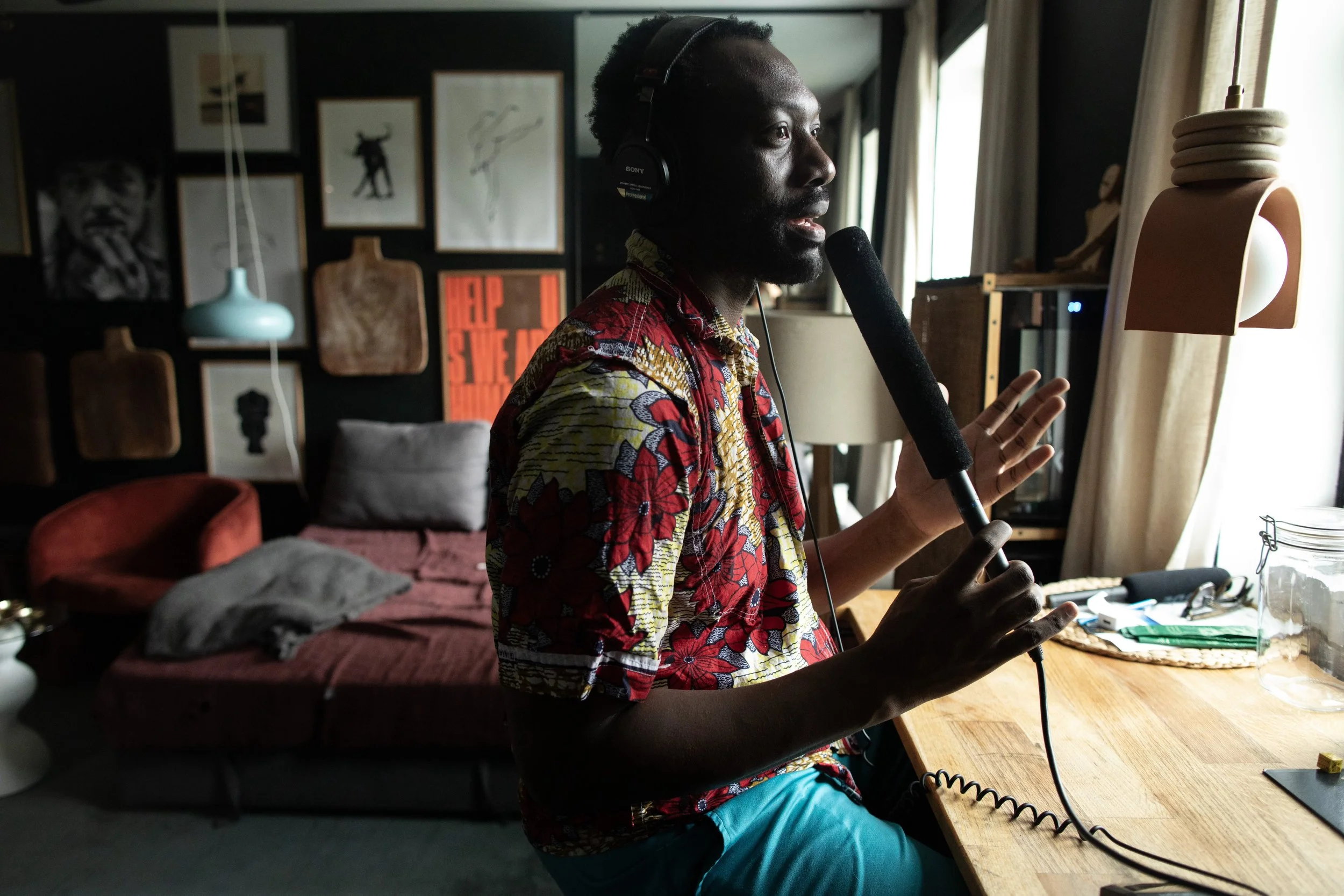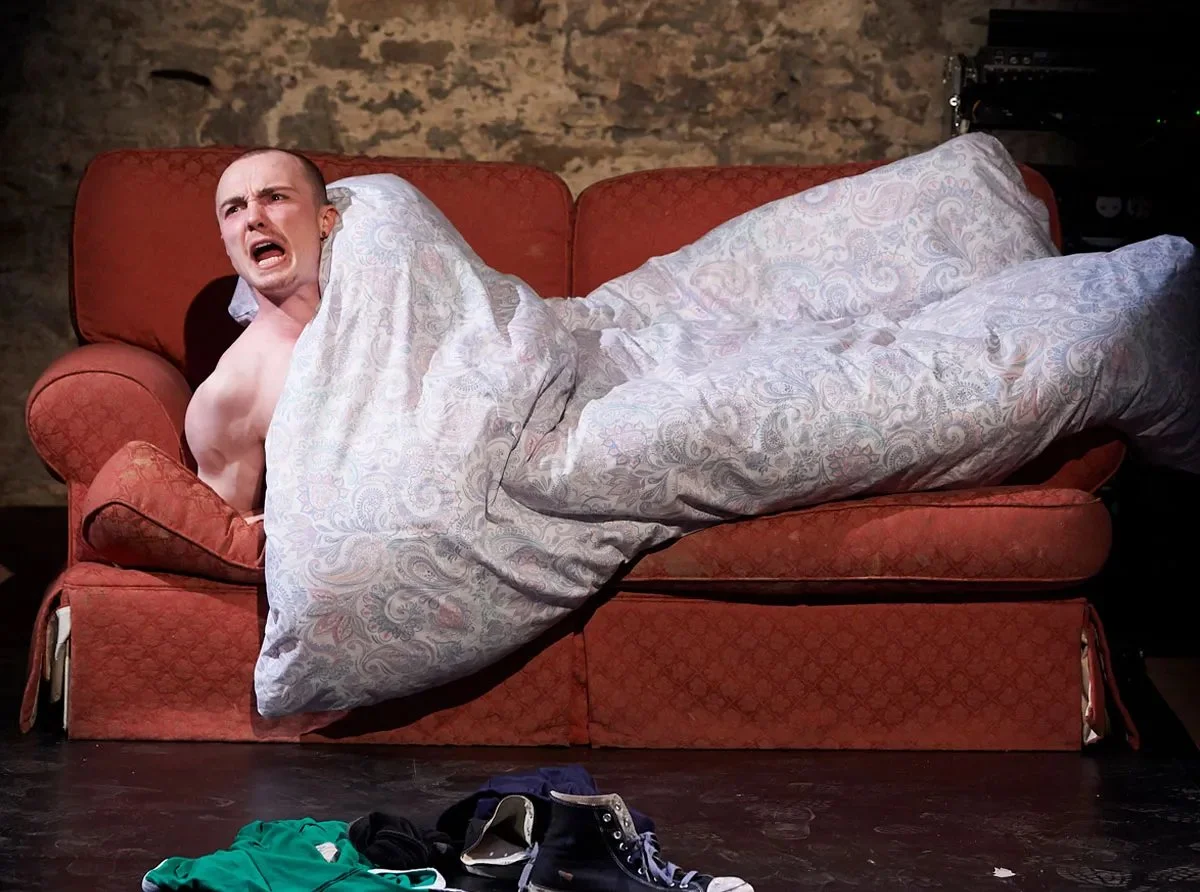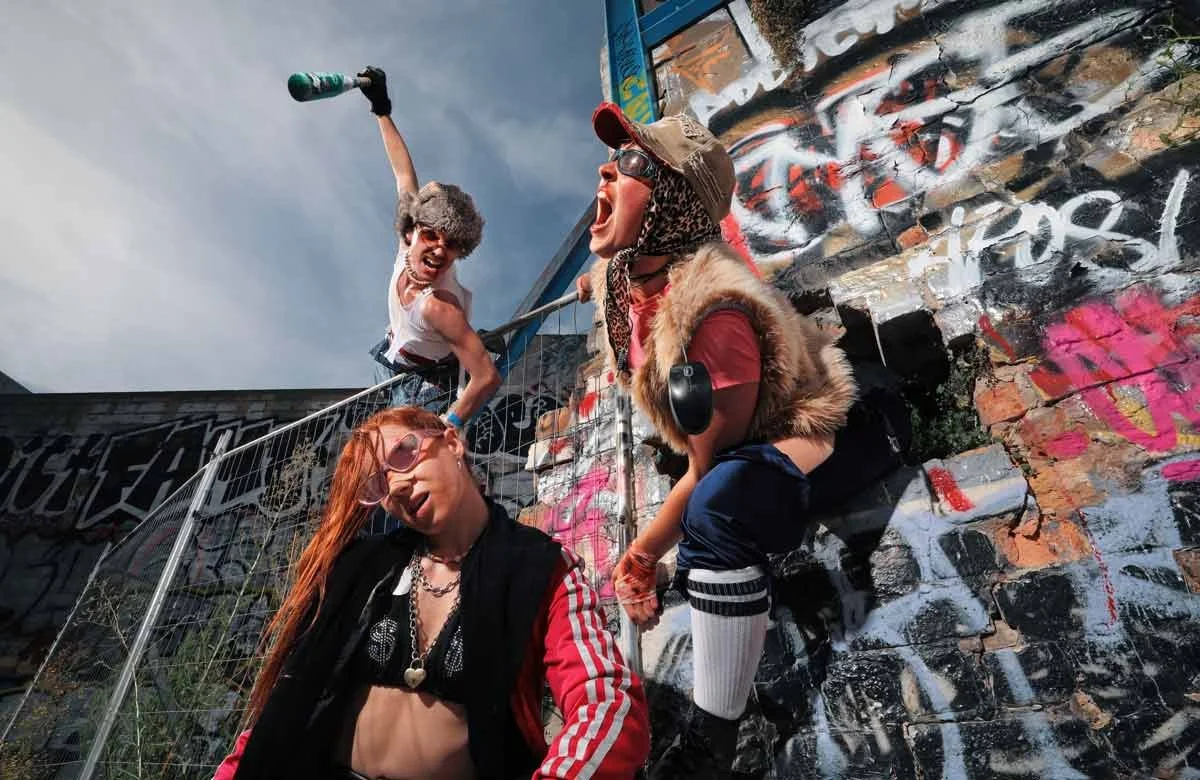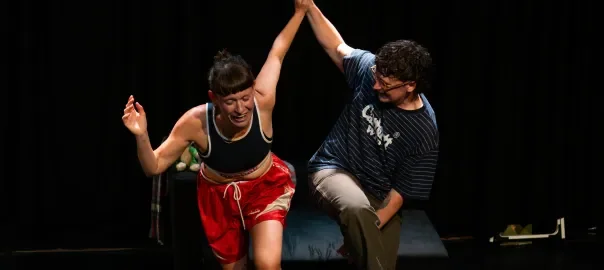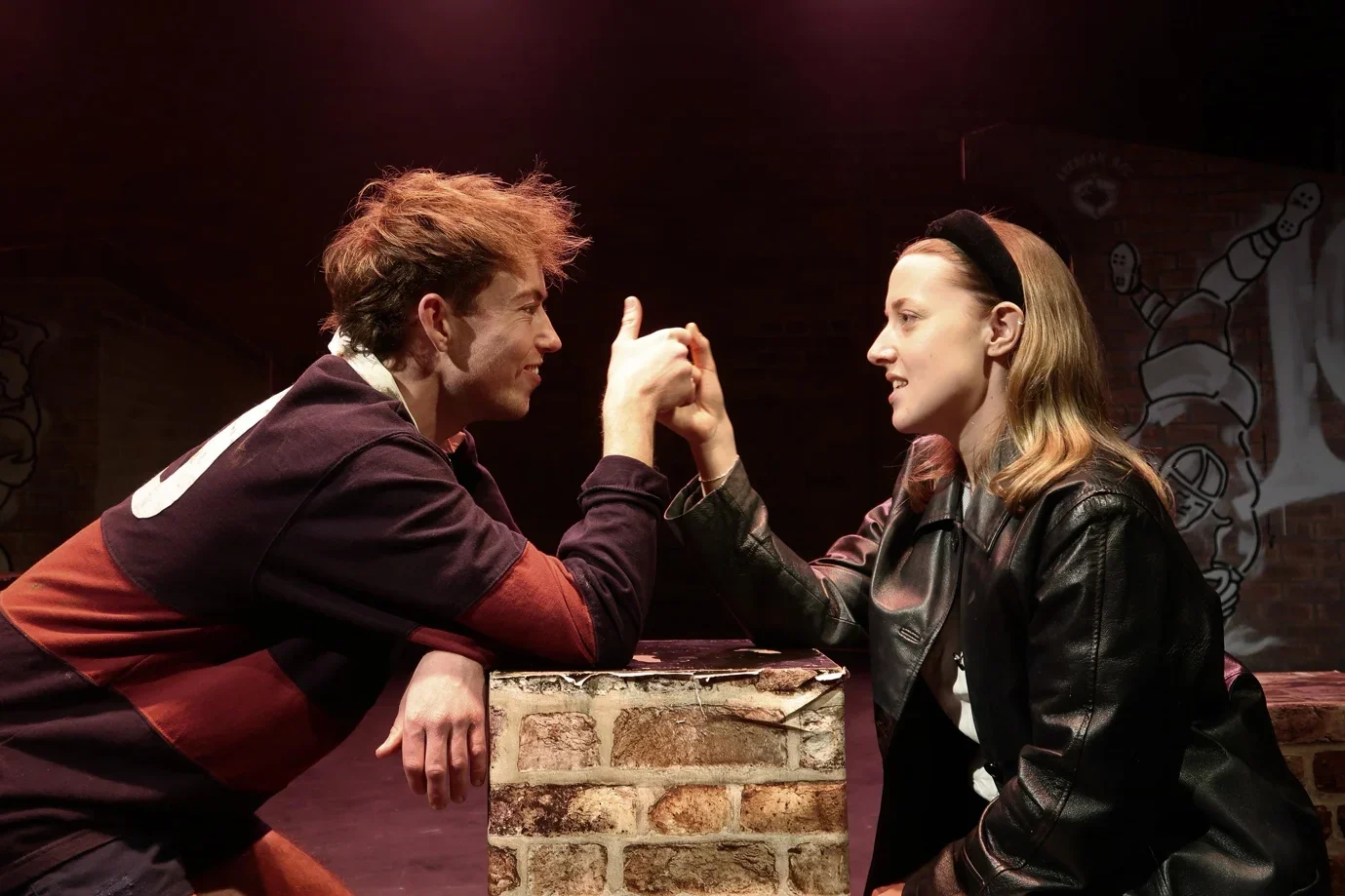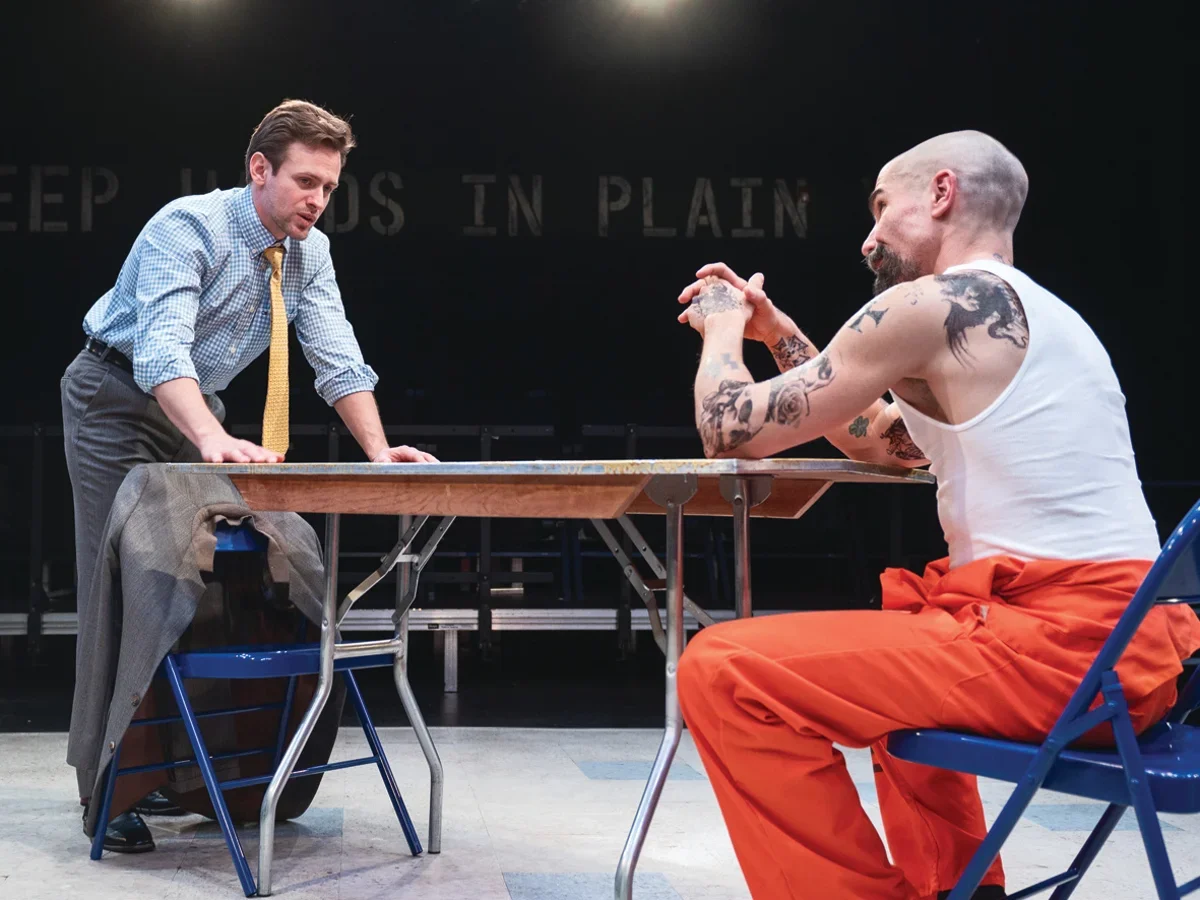Edinburgh Fringe Chats (#129): Alex Hare, THE MONKEYPOX GOSPEL
As anticipation builds for the Edinburgh Festival Fringe 2025, we’re catching up with a range of exciting creatives preparing to bring their work to the world’s largest arts festival this August. In this series, we delve into the stories behind the shows, the inspiration driving the artists, and what audiences can expect. Today, we’re joined by Alex Hare to find out more about The Monkeypox Gospel.
1. Can you begin by telling us about your show and what inspired it?
The Monkeypox Gospel is a podcast-play about Ngofeen’s frenzied summer of 2022, which he spent reporting on the global outbreak of “monkeypox” (now known as mpox) for the New Yorker magazine. The virus originated in the Democratic Republic of Congo (where Ngofeen’s parents comes from), and it was spreading rapidly via sexual contact in the queer community in NYC. For Ngofeen, writing publicly about it meant having to face difficult questions about his relationship to his sexuality, faith, and family/culture, having recently broken a lifelong vow of celibacy and taken tentative steps into a new gay life he wasn’t sure he wanted.
Ngofeen had been working on a podcast version of the story when I asked if he’d consider turning it into a play. It’s been a whirlwind six month process since then, and we’ve tried to home in on what we find most exciting about an audio-driven story on stage.
We’ve spoken frequently about what a podcast can do vs. what theater can do, and a lot of the boundaries between the two mediums have proven to be malleable. I think the key difference for us between a play and a podcast is that in the theater, we can watch our host, Ngofeen, listening back to his life as we listen with him. We hope that the live experience of this shared watching and listening can resonate with people.
2. What made you want to bring this work to the Fringe this year?
Both of us being excited to learn about the show from a 24-performance run, and being the right amount of scared. Also, the Fringe has become the mecca of solo confessional theater, and we were interested in trying to work within that form while also subverting expectations, making our own bold formal choices, and trying to share what we think is special about this story.
3. How would you describe your show in three words?
Kaleidoscopic, operatic, balletic! (those last two are hints at particular sequences in the show, though no spoilers here)
4. What do you hope audiences take away from watching your performance?
I think the show is a testament to the complexity of a person’s life – Ngofeen’s life, in this case, but more broadly all of our lives. Despite the 60 minute runtime, we’re trying to create a show that doesn’t reduce important aspects of Ngofeen for narrative convenience, nor simplify his choices into easy binaries.
As he was writing the New Yorker article, he was recognizing how the mpox outbreak reflected so many different aspects of his life back at him: his relationship to queerness, to his Congolese background, to celibacy and Evangelicalism, to journalism and writing. The article would be a kind of public declaration about his relationship to each of those elements of his identity, and with each of those very much in flux, the task became a daunting and urgent one.
The difficulty of conveying the complexity of a life in an article (or a podcast, a play, a conversation) makes us all the more eager to try. Hopefully, audiences can come away with a renewed appreciation for the way our life stories spill out all over.
5. What’s your top tip for surviving the Fringe?
Given that our show is about public health, I’ll probably say “wear a mask wherever possible” (we’ve never been, but we hear tell about the Fringe flu…).
6. Where and when can people see your show?
The Monkeypox Gospel is playing at Underbelly’s Cowgate space from July 31-August 24! Every day at 5:50pm - all days except August 11.

